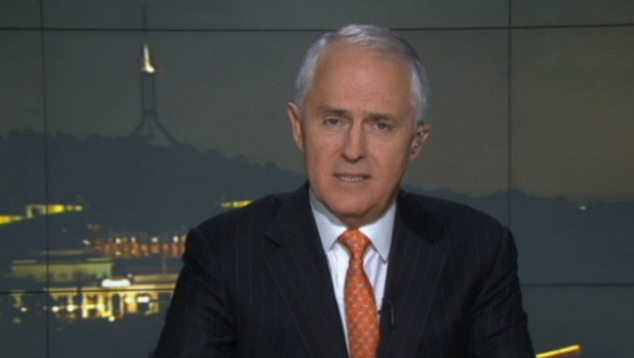
Prime Minister Malcolm Turnbull has suggested that the plebiscite on marriage will be pushed back to 2017.
Appearing on the ABC’s ‘7:30’ the Prime Minister was asked by host Leigh Sales when he planned to introduce the legislation required for the plebiscite to be held.
“We will bring that legislation forward in the course of this year. As to when it passes the parliament, that will be a matter for the parliament.” The Prime Minister said.
“We’d like the plebiscite to be held as soon as practicable, but again, that will depend on when the legislation is passed. We’ll be bringing it forward as soon as practicable.”
Mr Turnbull told the ABC that if the plebiscite was not held in the latter part of this year, it would be held early in 2017. The PM said not knowing the make-up of the senate was a factor.
Senator Eric Abetz welcomes the PM’s flexibility
Tasmanian senator Eric Abetz, who supports traditional marriage, has told SKY news he welcomed the Prime Minister flexibility.
“My view is the plebiscite needs to occur in an orderly fashion that allows the electoral commission to undertake all the necessary planning that allows those in favour of changing the traditional definition of marriage, those that want to retain of the definition of marriage to secure the future of the next generation, that both sides should be allowed to have a proper campaign, ventilate the issues and ensure it’s a well and properly conducted campaign and plebiscite.” Senator Abetz said.
Senator Abetz said the plebiscite should not be rushed or delivered in a “ham-fisted” manner as it was important that both sides of the debate could be satisfied with it’s outcome.
Make up of new parliament may block plebiscite legislation
The government may struggle to pass the legislation for the plebiscite through the new senate. The Labor party and the Nick Xenophon team have both publicly stated their preference for a parliamentary vote on the matter, and The Greens are also opposed to a plebiscite.
While it’s not known if the non-government parties will block the legislation being passed, their combined votes could potentially stop the plebiscite proposal moving forward.
The Australian Christian Lobby, one of the major opponents to changing the marriage act, have argued that if a plebiscite can not be legislated then the issue should be “off the table” until the next federal election.
OIP Staff




